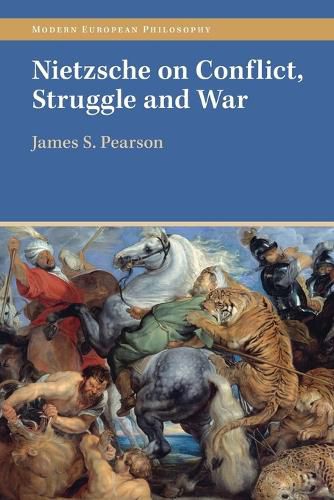Readings Newsletter
Become a Readings Member to make your shopping experience even easier.
Sign in or sign up for free!
You’re not far away from qualifying for FREE standard shipping within Australia
You’ve qualified for FREE standard shipping within Australia
The cart is loading…






Nietzsche controversially valorizes struggle and war as necessary ingredients of human flourishing. In this book, James S. Pearson reconstructs Nietzsche's rationale for placing such high value on relations of conflict. In doing so, Pearson reveals how Nietzsche's celebration of social discord is interwoven with his understanding of nature as universal struggle. This study thus draws together Nietzsche's writings on politics, culture, metaphysics, biology and human psychology. It also overcomes an entrenched dispute in the critical literature. Until now, commentators have tended to interpret Nietzsche either as an advocate of radical aristocratic violence or, by contrast, a defender of moderate democratic contest. This book navigates a path between these two opposed readings and shows how Nietzsche is able to endorse both violent strife and restrained competition without contradicting himself.
$9.00 standard shipping within Australia
FREE standard shipping within Australia for orders over $100.00
Express & International shipping calculated at checkout
Nietzsche controversially valorizes struggle and war as necessary ingredients of human flourishing. In this book, James S. Pearson reconstructs Nietzsche's rationale for placing such high value on relations of conflict. In doing so, Pearson reveals how Nietzsche's celebration of social discord is interwoven with his understanding of nature as universal struggle. This study thus draws together Nietzsche's writings on politics, culture, metaphysics, biology and human psychology. It also overcomes an entrenched dispute in the critical literature. Until now, commentators have tended to interpret Nietzsche either as an advocate of radical aristocratic violence or, by contrast, a defender of moderate democratic contest. This book navigates a path between these two opposed readings and shows how Nietzsche is able to endorse both violent strife and restrained competition without contradicting himself.